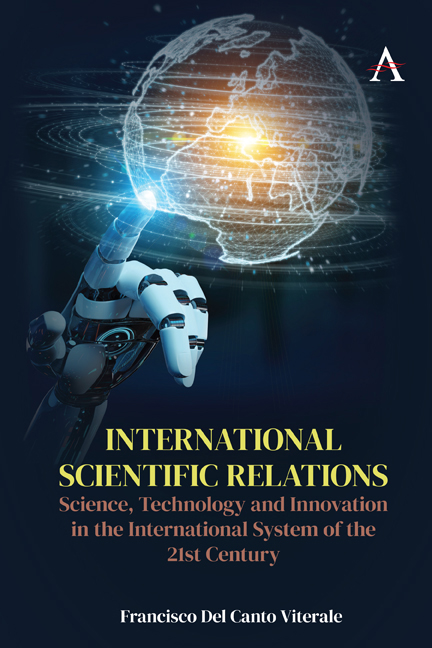 International Scientific Relations
International Scientific Relations Foreword
Published online by Cambridge University Press: 08 October 2021
Summary
For the first time in the history of humanity, we bear witness to a time where the international system is increasingly dependent on a large number of actors. The past 300 years of history clearly show that we are seeing something unusual: the continuous multiplication of actors capable of affecting this international system. The Nation-State has lost its central role as the sole sovereign actor of the international system and must now interact and negotiate with new actors such as NGOs, mafias, multinational corporations, and hackers, among many others.
To this multitude of actors and interactions, we also add a new spectacular revolution in communications (a term too old to capture what is truly happening nowadays, with all its nuances and ramifications), which is introducing a new way of building power and a different way of establishing alliances and creating conflicts on an international scale.
These two factors have generated a new international scenario in which the actors, both large and small, have equal access to state-of-the-art technology (military, biological, energetic, chemical, industrial, and cybernetic), which gives these domestic-and international-level entities a substantial increase in power and influence. We are already three decades into what has been called the computerization of armies, the automation of air armaments, the implementation of high tech to the navy, and the rise of long-distance wars. These advances, along with cyberterrorism, make States much more dependent on access to new technologies now than in any previous point in history.
Unlike what happened in the past, nowadays science, technology, and innovation are changing rapidly and have a decided influence on global power. This combination has created a new dimension of something that is already very well known: scientific and technological espionage. The global system is no longer an arena totally controlled by States and, as such, espionage is no longer an activity funded and dominated completely by governments.
As has always happened, Nation-States live with the constant pressure of trying to improve the technology linked to its military apparatus. However, scientific and technological development is not only reduced to traditional armament but also biological and chemical weapons, nuclear technology, communicational and visual know-how for high-precision large- distance warfare and cybernetic combat.
- Type
- Chapter
- Information
- International Scientific RelationsScience, Technology and Innovation in the International System of the 21st Century, pp. xiii - xviPublisher: Anthem PressPrint publication year: 2021


